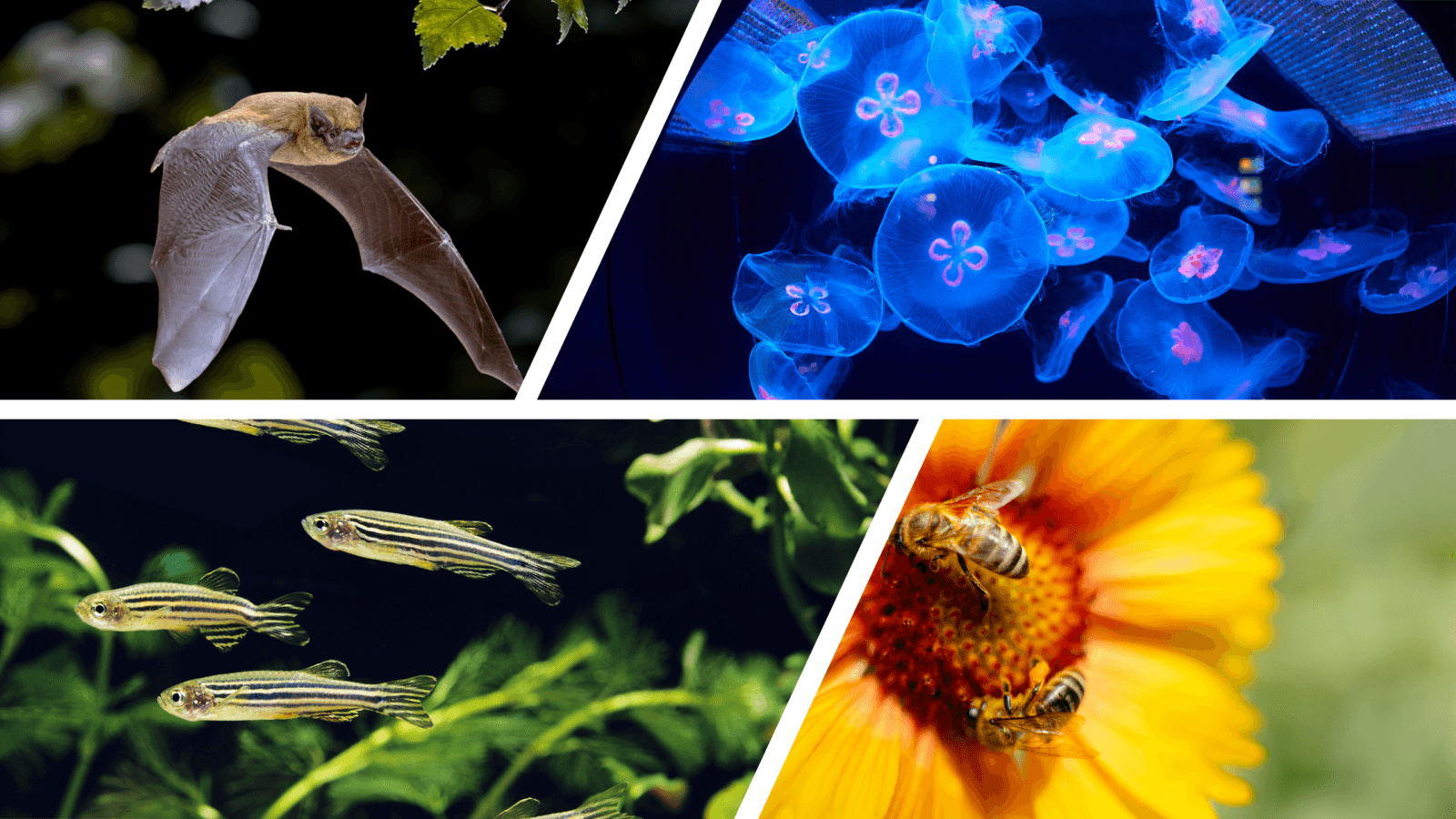Kavli and NSF Announce New Grant Awards to Advance Neurobiology in Changing Ecosystems
An initiative to explore how nervous systems function and evolve in dynamic natural environments

The Kavli Foundation and the U.S. National Science Foundation (NSF) have announced the latest recipients of funding under their joint initiative to explore how nervous systems function and evolve in dynamic natural environments. This marks a continued commitment to supporting bold, interdisciplinary research at the intersection of neuroscience, biology, and ecology.
Building on the inaugural set of awards announced in 2024, this second round of funding further continues to advance the goals of the Neurobiology in Changing Ecosystems (NiCE) program. NiCE supports research into how nervous systems mediate behavioral and physiological adaptation to anthropogenic environmental change, and aims to uncover the mechanisms by which organisms respond to stressors such as pollution, temperature shifts, and other environmental challenges.
Supporting New Frontiers in Neuroscience
“Understanding how nervous systems function in the real world is one of the most exciting frontiers in neuroscience,” said said Dr. Susan Renn, Professor of Biology at Reed College who has been tracking this initiative since its inception. “The NiCE initiative stimulates research that aims to integrate our understanding of the brain across levels of biological organization, from genes and cells to behavior and ecosystems.”
These awards bring attention to a growing recognition in science that brain function cannot be fully understood in isolation from the environments in which organisms live. By embracing technological innovations and ecological complexity, the program aims to fund work that will uncover fundamental principles of neurobiology and reveal how animals adapt cognitively and behaviorally to a changing world.
2025 NiCE Awardees
The newly selected awardees represent a diverse and interdisciplinary set of projects, each funded at $1M over three years. These efforts bring together investigators across institutions and fields to explore how nervous systems respond to environmental challenges. The funded projects span a wide range of species and ecosystems and aim to uncover fundamental neural mechanisms driving behavior, resilience, and adaptation in a changing world.
The 2025 awardees are:
- University of Oregon: Judith Eisen and co-investigators John Postlethwait, Philip Washbourne) will examine how rising temperatures and low-level pollutants like dioxin, an estrogen-disrupting chemical, interact in the brain to influence reproductive behavior in zebrafish, providing insight into how climate and pollution could impact fish populations vital to ecosystems and food security.
- Johns Hopkins University: Cynthia Moss and co-investigators Kishore Kuchibhotla and Amanda Lauer will investigate how neural specializations in species like bats and mice confer resilience to anthropogenic noise, aiming to uncover protective mechanisms in the auditory system that could inform strategies to prevent hearing damage in humans and wildlife exposed to increasingly noisy environments.
- University of Kentucky: Clare Rittschof will investigate how honey bees integrate daylength and temperature cues to adapt behavior, such as pollination, in response to shifting environmental conditions, which could advance efforts to enhance food security by protecting against pollinator loss.
- Massachusetts Institute of Technology: Brandon Weissbourd will use will use the genetically tractable jellyfish Clytia to examine how larvae sense and use environmental cues to explore their environment and decide where to settle, offering key insights into marine population dynamics, invasive species control, and the neural-basis of decision-making in early life stages.
A Continued Partnership for Impact
The Kavli Foundation and NSF formed a partnership in 2023 with a shared vision for supporting research that bridges neuroscience and ecology. The NiCE grantmaking program provides funding for scientific exploration that addresses how nervous systems evolve and function under variable ecological constraints.
“We are excited to see how this new cohort of scientists will build on the creativity and rigor of the first round of NiCE awards,” said Dr. Amy Bernard, Vice President of Science at The Kavli Foundation. “This initiative reflects our commitment to advancing neuroscience in ways that are grounded in the complexity of the natural world.”
Looking Ahead
As global ecosystems continue to change, understanding the neurobiological mechanisms of adaptation and resilience has never been more urgent. The Kavli Foundation will continue to catalyze research that redefines how and where we study the brain, helping to ensure that the future of neuroscience is as diverse and dynamic as the natural world.
For the press release, see link here.